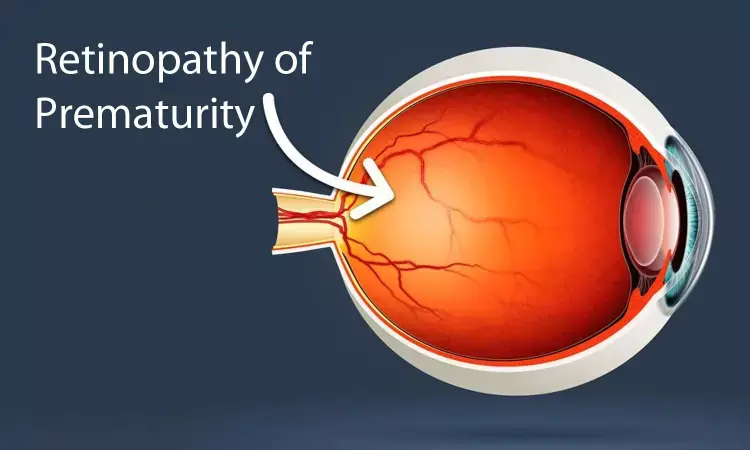- Home
- Medical news & Guidelines
- Anesthesiology
- Cardiology and CTVS
- Critical Care
- Dentistry
- Dermatology
- Diabetes and Endocrinology
- ENT
- Gastroenterology
- Medicine
- Nephrology
- Neurology
- Obstretics-Gynaecology
- Oncology
- Ophthalmology
- Orthopaedics
- Pediatrics-Neonatology
- Psychiatry
- Pulmonology
- Radiology
- Surgery
- Urology
- Laboratory Medicine
- Diet
- Nursing
- Paramedical
- Physiotherapy
- Health news
- Fact Check
- Bone Health Fact Check
- Brain Health Fact Check
- Cancer Related Fact Check
- Child Care Fact Check
- Dental and oral health fact check
- Diabetes and metabolic health fact check
- Diet and Nutrition Fact Check
- Eye and ENT Care Fact Check
- Fitness fact check
- Gut health fact check
- Heart health fact check
- Kidney health fact check
- Medical education fact check
- Men's health fact check
- Respiratory fact check
- Skin and hair care fact check
- Vaccine and Immunization fact check
- Women's health fact check
- AYUSH
- State News
- Andaman and Nicobar Islands
- Andhra Pradesh
- Arunachal Pradesh
- Assam
- Bihar
- Chandigarh
- Chattisgarh
- Dadra and Nagar Haveli
- Daman and Diu
- Delhi
- Goa
- Gujarat
- Haryana
- Himachal Pradesh
- Jammu & Kashmir
- Jharkhand
- Karnataka
- Kerala
- Ladakh
- Lakshadweep
- Madhya Pradesh
- Maharashtra
- Manipur
- Meghalaya
- Mizoram
- Nagaland
- Odisha
- Puducherry
- Punjab
- Rajasthan
- Sikkim
- Tamil Nadu
- Telangana
- Tripura
- Uttar Pradesh
- Uttrakhand
- West Bengal
- Medical Education
- Industry
Propranolol Shows Promise in Preventing Severe Retinopathy of Prematurity

Retinopathy of prematurity (ROP) remains a leading cause of avoidable blindness in infants, particularly among extremely preterm newborns. With the rising survival rates of these infants, the incidence of ROP has increased, emphasizing the need for effective preventive strategies.
A recent meta-analysis delved into the potential of propranolol as a therapeutic option and early prevention method for ROP, shedding light on its effectiveness.This study was published in American Journal Of Ophthalmology by Shafique M. and colleagues.
A comprehensive meta-analysis, encompassing 8 relevant studies, was conducted to assess the efficacy of propranolol in preventing severe ROP. Following rigorous evaluation using PRISMA guidelines, the analysis included trials and observational studies involving beta-blockade to prevent stage ≥3 ROP or treatment requirement.
The meta-analysis revealed compelling evidence supporting the use of oral propranolol as a preventive measure for severe ROP. The Risk Ratio of 0.59 indicated a significantly lower risk of ROP development compared to other therapies or control groups.
Risk Ratio for plus disease: 0.42 (95% CI 0.23, 0.78; P= 0.006, I2= 0%)
Risk Ratio for laser photocoagulation: 0.48 (95% CI 0.31, 0.74; P= 0.001; I2= 2%)
Risk Ratio for intravitreal injection of VEGF: 0.43 (95% CI 0.24, 0.74; P= 0.003, I2= 0%)
These figures suggest a substantial reduction in the likelihood of developing plus disease or requiring laser photocoagulation or intravitreal VEGF injection for ROP in infants treated with propranolol.
The findings of this meta-analysis present promising implications for the use of oral propranolol as a preventive measure against severe ROP in premature newborns. However, the appropriate dosage and timing of propranolol administration warrant further investigation as they can significantly impact treatment outcomes.
The success of propranolol in preventing severe ROP underscores the importance of continued research in refining its administration protocols. Future studies should focus on optimizing dosage regimens and timing to maximize treatment efficacy and safety for this vulnerable population.
Reference:
Shafique, M. A., Haseeb, A., Uddin, M. M. N., Asghar, B., Chaudhry, E. R., Raqib, M. A., Ali, S. M. S., & Mustafa, M. S. Effectiveness of propranolol in preventing severe retinopathy of prematurity: A comprehensive systematic review and meta-analysis. American Journal of Ophthalmology,2023. https://doi.org/10.1016/j.ajo.2023.11.012
Dr Riya Dave has completed dentistry from Gujarat University in 2022. She is a dentist and accomplished medical and scientific writer known for her commitment to bridging the gap between clinical expertise and accessible healthcare information. She has been actively involved in writing blogs related to health and wellness.
Dr Kamal Kant Kohli-MBBS, DTCD- a chest specialist with more than 30 years of practice and a flair for writing clinical articles, Dr Kamal Kant Kohli joined Medical Dialogues as a Chief Editor of Medical News. Besides writing articles, as an editor, he proofreads and verifies all the medical content published on Medical Dialogues including those coming from journals, studies,medical conferences,guidelines etc. Email: drkohli@medicaldialogues.in. Contact no. 011-43720751


